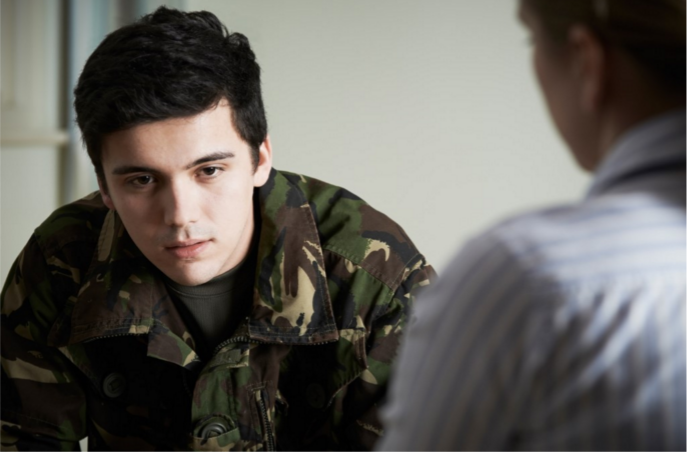Post-traumatic Stress Disorder or PTSD is an anxiety disorder following a traumatic experience. Commonly seen in war veterans and victims of assault, PTSD can emerge following an auto accident, robbery, even
an earthquake. A sad truth of PTSD is that in many cases, it can lead to drug abuse and even addiction.
When your loved one suffers from PTSD, being able to comprehend and support them through their own personal ordeals are not always sufficient enough to help them get through the rough times. With the help of mental health inpatient treatment centers and your support, however, a PTSD sufferer can regain their confidence, their peace of mind, and their sobriety.

Never Pressure Your Loved One to Talk About Their Issues.
Oftentimes, a misunderstanding arises when you confront your loved, especially when they are suffering. As it can be difficult for someone who has PTSD to talk about their traumatic experiences, pressuring them to talk about it can add to their difficulties. Give them the space they need and let them know that you are willing to listen regardless of what they have been through. Acknowledging their traumatic experiences and being there to comfort them can be good enough to let them know how much you care.
Always Be a Good Listener.
People suffering from a co-occurring disorder have a need for understanding. When your loved one decides to talk to you about their traumatic experiences, never ever blame them for their feelings or statements. Always understand that they were the victim of circumstances and that their problem right now is the consequence of what they have been through. Allowing them to heal with the help of mental health treatment facilities will not just help them feel better and more capable, but also teach them a better understanding of what they have been through. The emotional scars and psychological anguish of going through a harrowing experience can be alleviated with an effective treatment program that focuses on removing both the addiction and the co-occurring disorder.
Live Normally With Your Loved One.
Knowing what they’ve been through can sometimes be awkward considering that they have allowed their inner self to be recognized. This can sometimes lead to emotional vulnerabilities which can often be absent in your relationship. Whether a child or a spouse is divulging their emotions, living a normal life can be helpful to let them remember they are part of a family. Carefully advise them to seek guidance from a mental health inpatient treatment center so they can fully understand their condition and learn of effective life-changing strategies to remove the roadblock of their addiction and mental disorder.
Manage Your Own Triggers and Stressors.
Being involved with a PTSD person can be challenging because of their erratic behavior. Managing your own stresses can help you deal with a sufferer much better without going through non-productive fights and arguments. Remember that the more relaxed and focused you are, the better you will be able to understand and help them.
Take Care of Yourself.
This has got to be the most important advice you can get when living with a person with PTSD and addiction; never allow them to dominate your whole life. Taking care of your personal needs while being there to help them will put them back on their own feet.
